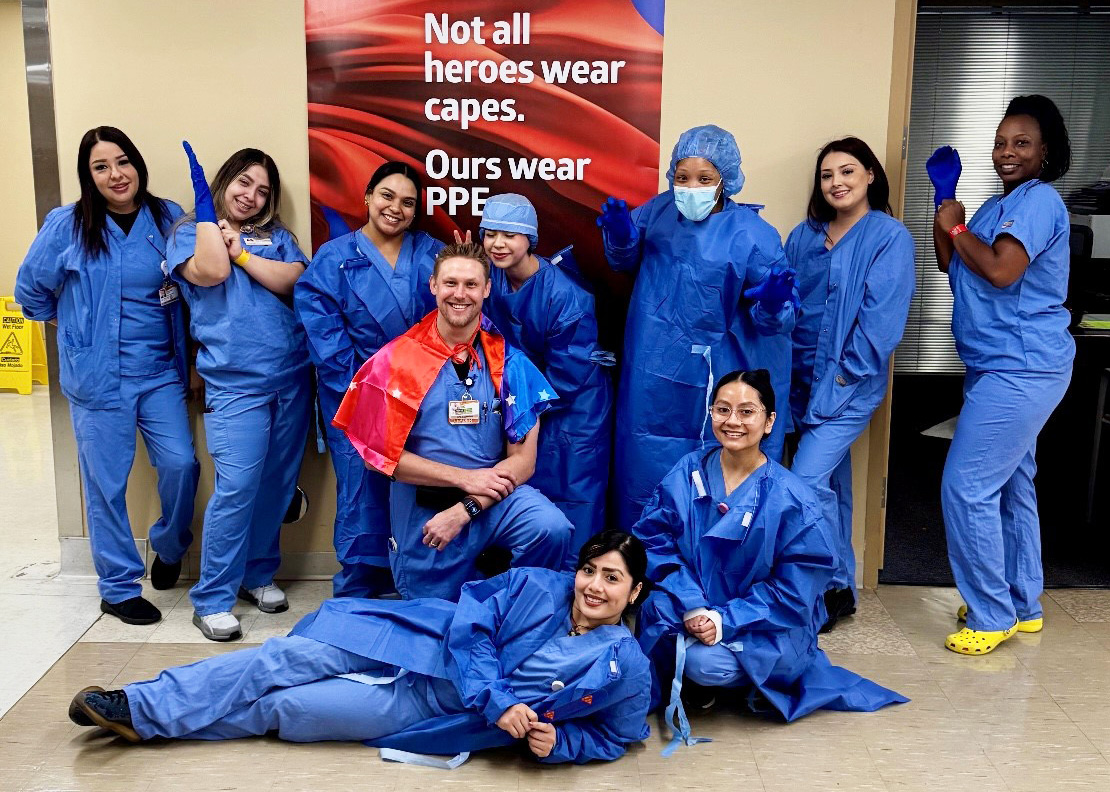In the oft-overlooked world of sterile processing, Medline sees only MVPs
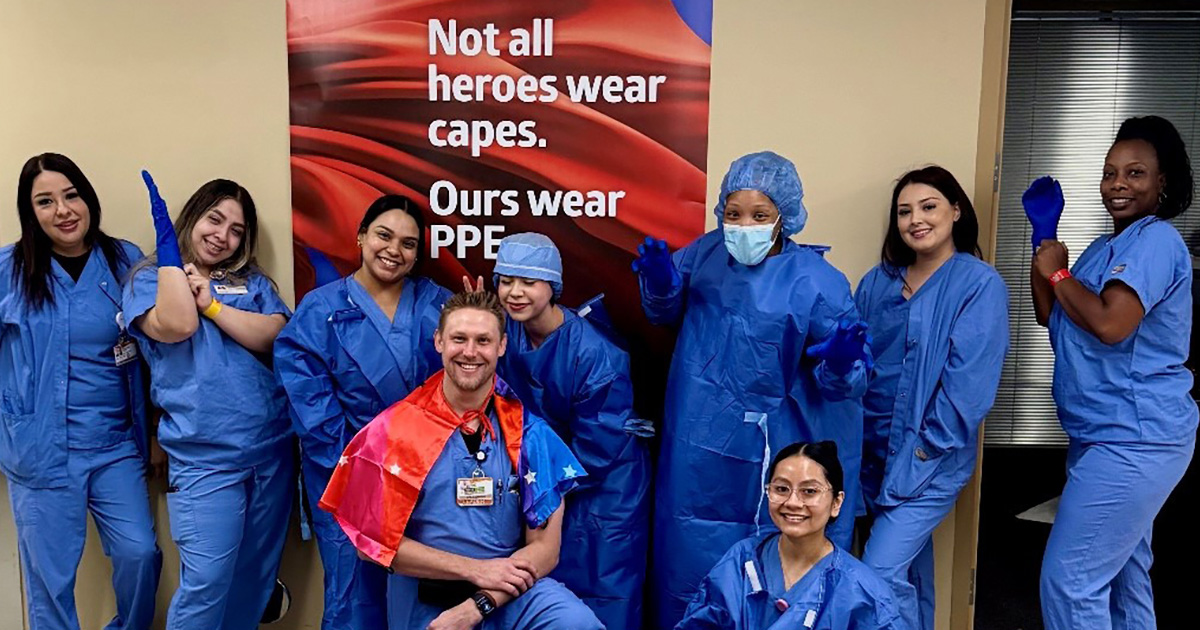
By Medline Newsroom Staff | March 20, 2025
For more than 25 years, Robby Miller has worked in the sterile processing department at St. Joseph’s Hospital and Medical Center in Phoenix – the first 10-plus years as a technician, the last 15 as the leader, overseeing a team of more than three dozen people whose primary job is to decontaminate reusable instruments for surgical teams across five operating rooms.
Miller doesn’t sugarcoat it: Life in the SPD can be a grind.
You’re wearing full PPE at nearly all times, which can get hot. Backlogs in reprocessing create pressure to catch up.
And there’s just so much to keep straight, with no margin for error when it comes to the safety of patients.
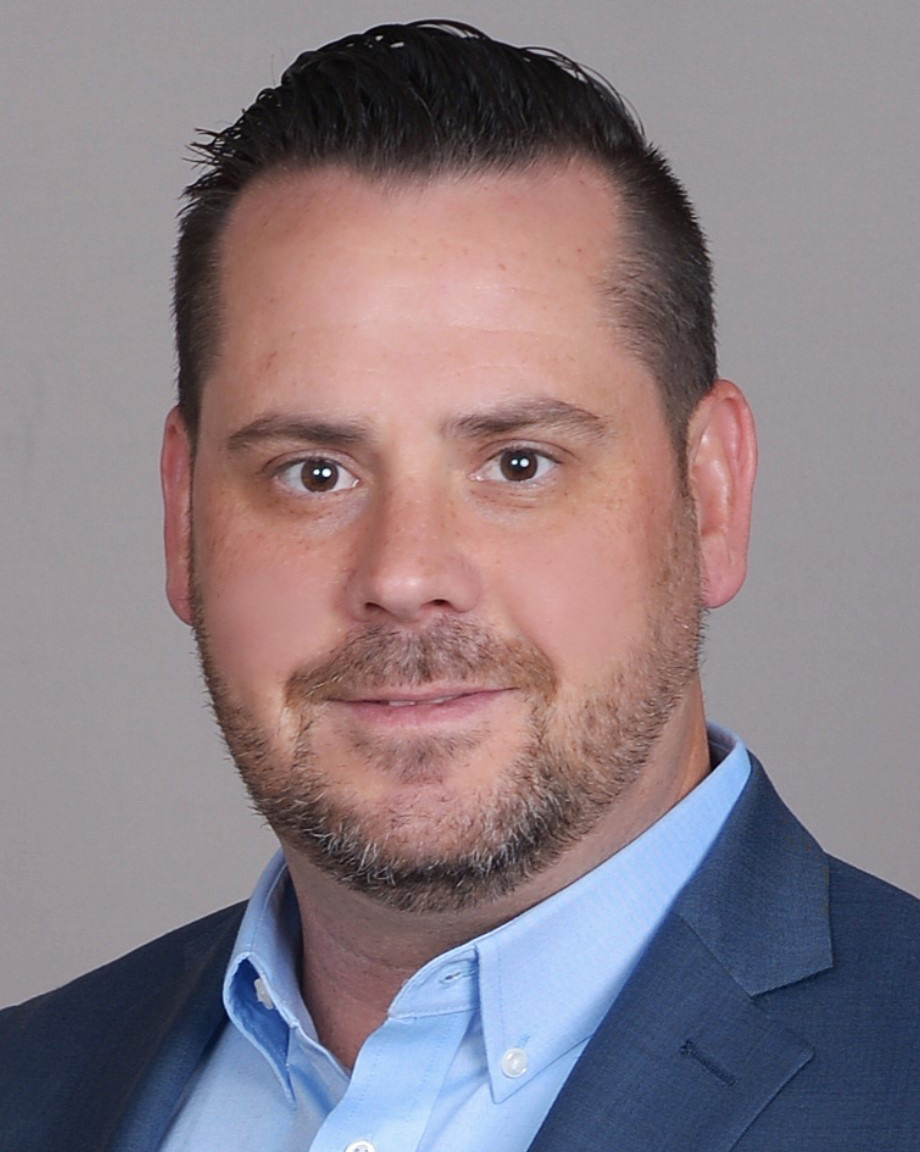 “It’s one of the unique challenges of the SPD,” said Miller (right). “Most surgical technicians, even most nurses, are very specialized. But sterile processing professionals have to be experts in instrumentation in every specialty – orthopedics, neurology, hearts, you name it.
“It’s one of the unique challenges of the SPD,” said Miller (right). “Most surgical technicians, even most nurses, are very specialized. But sterile processing professionals have to be experts in instrumentation in every specialty – orthopedics, neurology, hearts, you name it.
“It can be overwhelming for those first starting. We don’t teach the job in two or three weeks. It’s a year- to two-year-long process. And surgical technology has been advancing at just an incredible rate. The types of instruments we use today, especially in robotics, are amazing from a patient perspective, reducing length of stay, affecting pain management. But the reprocessing of these instruments can be extremely complex, and you must have a skilled staff that knows what they’re doing.”
Unfortunately, as many SPD professionals will attest, those skills and tremendous accountability sometimes go unnoticed – or at least aren’t fully appreciated. Technicians often feel invisible until there’s a problem.
“A lot of folks at hospitals and ambulatory surgery centers, even in the perioperative services, don’t have a background in sterile processing and really don’t understand the work we do,” Miller said.
All combined, it’s a cocktail of high-intensity, low-recognition work that can dent morale.
“And the answer to a lot of it,” Miller said, “is communication and education.”
Making strides – with a little outside love
Miller partners directly with the operating room managers at St. Joseph’s and reports to the vice president of surgical services, keeping up a steady drumbeat on the importance of the SPD to hospital safety. This helps somewhat with visibility and morale. To ensure his staff stay current and confident in their knowledge, he – like many other SPD managers around the country – provides structured, in-service education sessions so techs can more easily obtain the continuing education units needed to maintain their certifications.
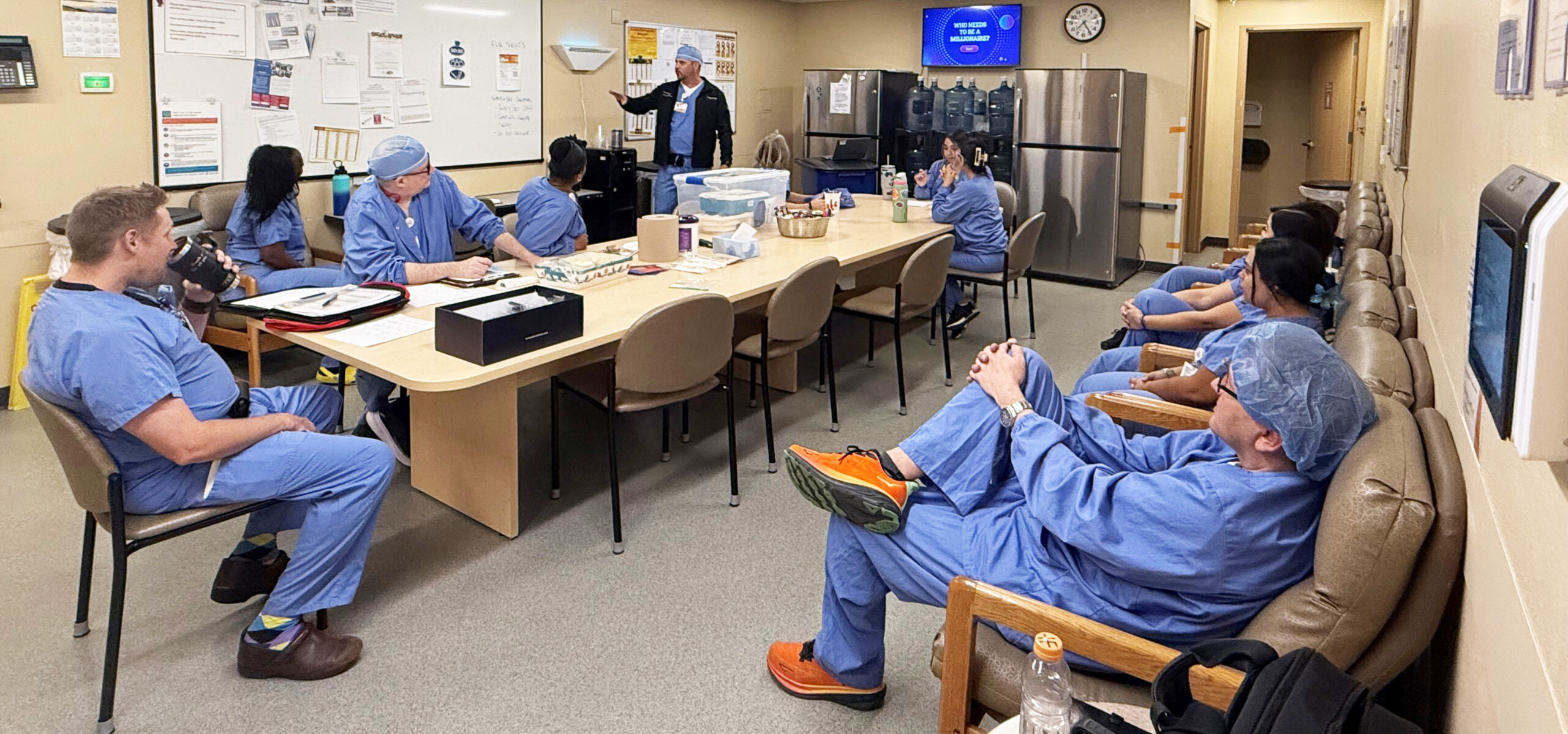
SPDAppreciation-MillerTeam
Robby Miller (standing) leads an educational game with his team.
“Education has to be a priority,” said David Preyer, sterile processing manager for both the University of Missouri Hospital and Keene Street Medical Center in Columbia, Mo. “Without incorporating education and, more importantly, staying on top of it, we aren’t able to properly do our job and provide quality of service for our patients.”
The best education sessions are the ones that stand out – a clever twist on learning, with spirited interaction.
“The key is to make it fun and engaging so people aren’t falling asleep in the back of the room,” said Mary Willis, SPD manager at the Missouri Orthopedic Institute in Columbia and the Capital Region Medical Center in Jefferson City, both part of the University of Missouri system. “It’s important to have conversations going – and not because you’re being directed to, but to stimulate yourself and learn.”
Last fall, as part of Sterile Processing Week, Miller used televisions in a St. Joseph’s staff lounge to put his own spin on four game shows, including “The Price is Right,” to reinforce SPD knowledge and quiz his “players” about instruments they routinely take apart and sterilize. SPD leaders around the country came up with similar outside-the-box ideas.
Many also received help and much-appreciated validation from an understanding partner: Medline. More than three dozen sales representatives and market directors for Centurion Medical Products, Medline’s division of surgical instruments and trays, visited SPDs across the U.S. over two weeks, holding a staggering 190 separate lunch-and-learn sessions centered on product education.
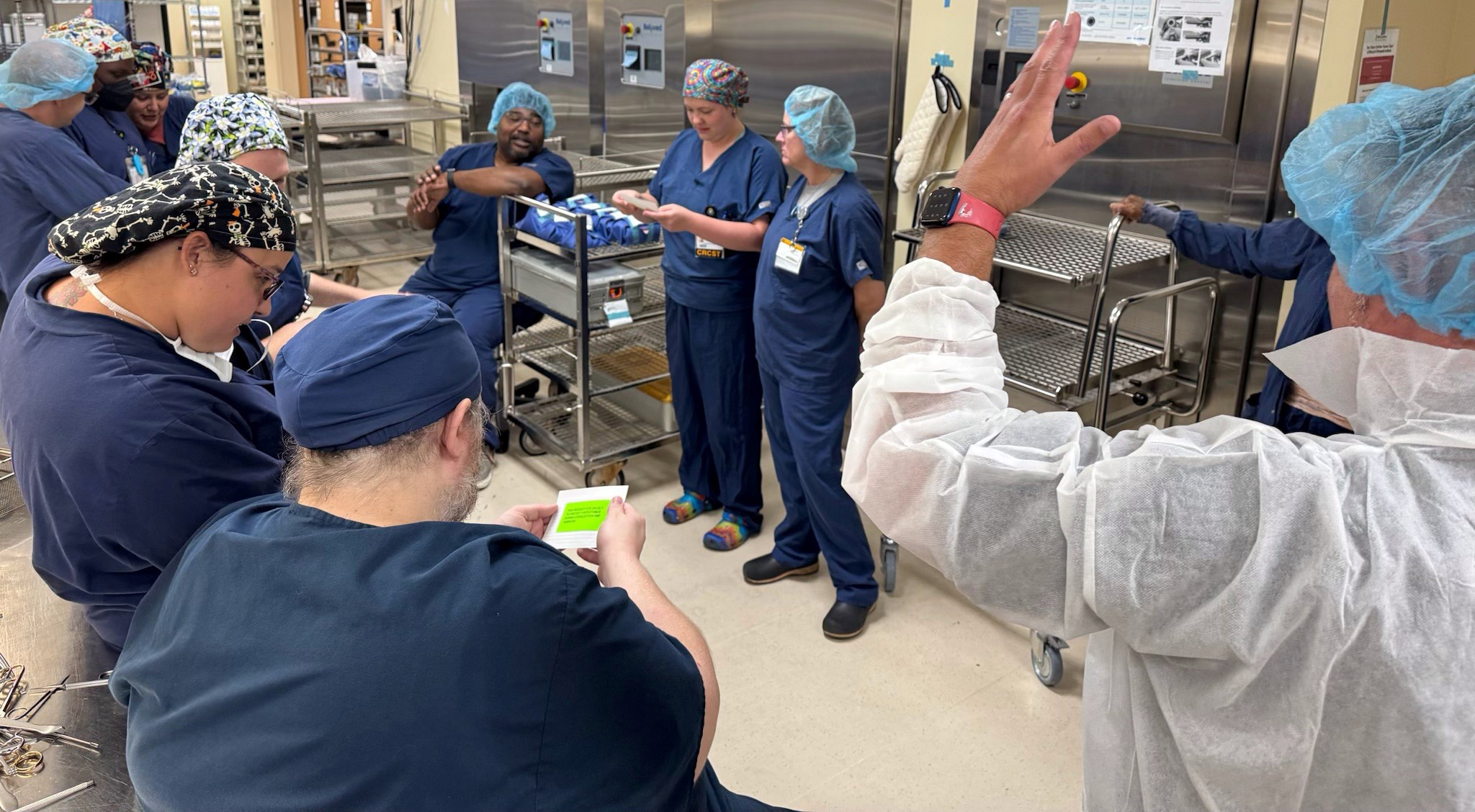
John Betts, the sales rep for Missouri and Kansas, visited more than a dozen SPDs across both states during and after Sterile Processing Week (above and below), including Preyer’s and Willis’ departments. In addition to a more conventional in-service presentation, he showed up with baskets and cards to run a scavenger hunt-style contest in which teams raced to decipher hints about sterile processing consumables – things like peel pouches, instrument guards and Bowie-Dick test packs – and fetch those items from their inventories.
“When I explained to them what they were going to do, they got excited,” said Betts, who developed the idea with some of his regular SPD contacts. “I also had customers who asked me later to go back to my original PowerPoint to show them how they can use Medline University for continuing education credits.”
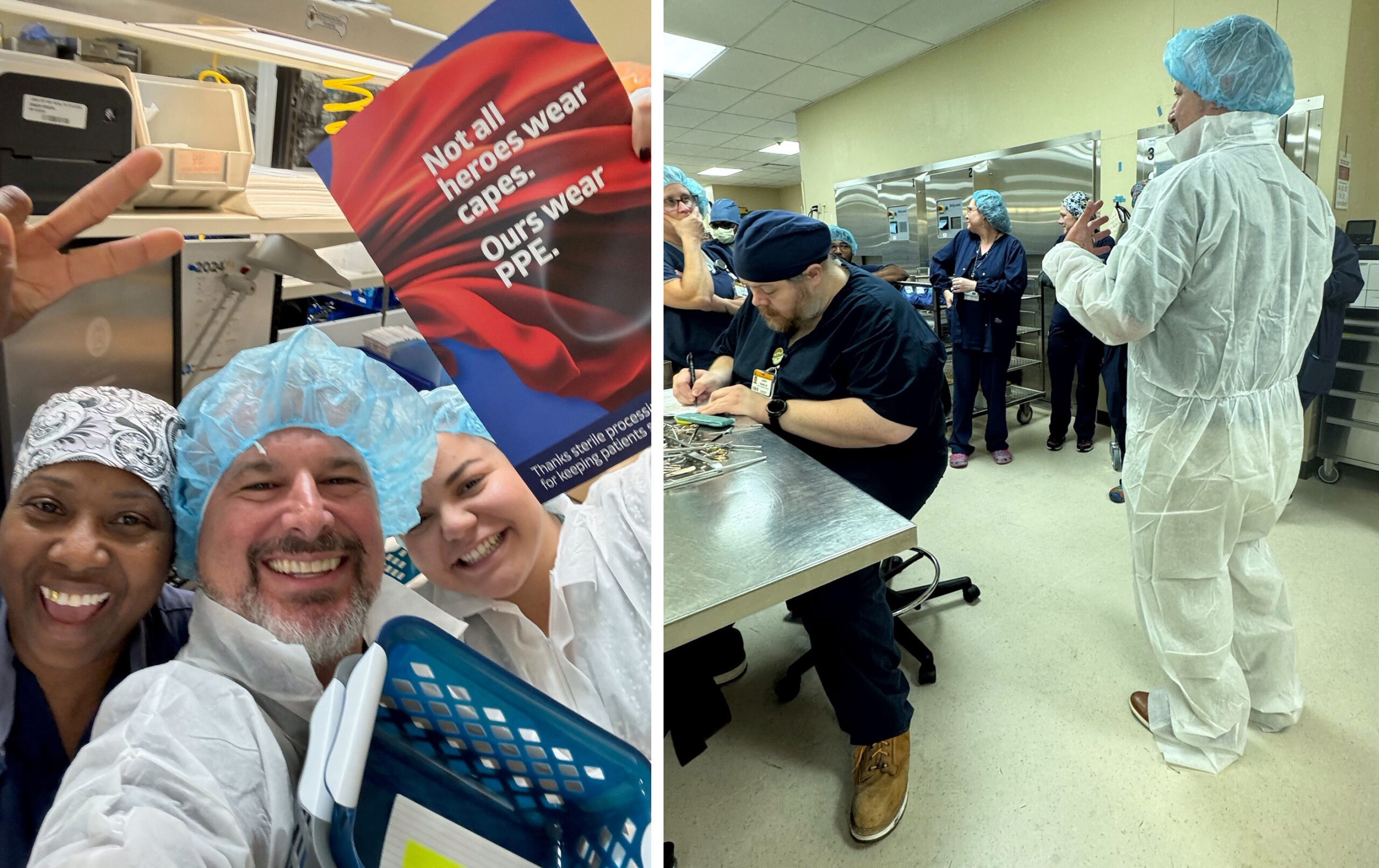
More than just a supplier
Each Medline rep brought in certificates of appreciation and postcard-sized calendars for SPD staff, plus a large poster to be hung as a daily reminder: “Not all heroes wear capes. Ours wear PPE.”
“A lot of times, a company will sell you a product but then leaves you hanging,” Preyer said. “The support that comes behind the product is more important. I feel like the sterilization department doesn’t ask for enough help from the Medline team. There’s so much more they can help us with that we don’t even realize.”
No doubt, any SPD has its pain points – often many. But Miller, for one, concedes his team is starting to feel more seen.
“People in any field love to feel support from their partners,” he said. “My focus is making sure staff get the whole picture and all of the information. And I think there’s always an opportunity for vendors like Medline if they have creative ways to help us deliver that.”
Read more about Medline’s approach to improving efficiency in sterile processing.
Medline Newsroom Staff
Medline Newsroom Staff
Medline's newsroom staff researches and reports on the latest news and trends in healthcare.
